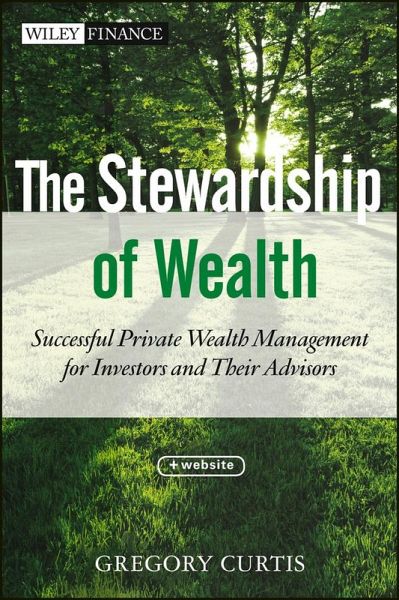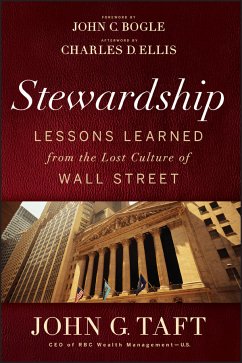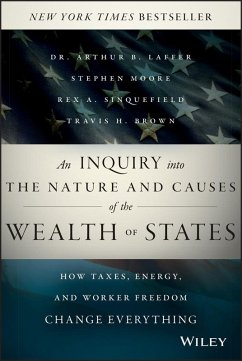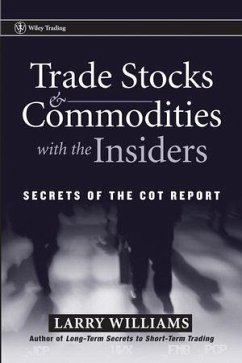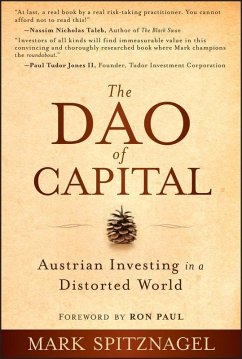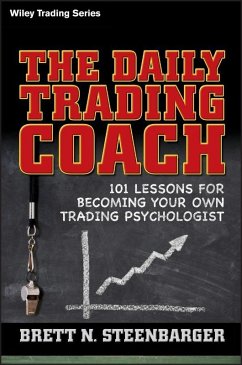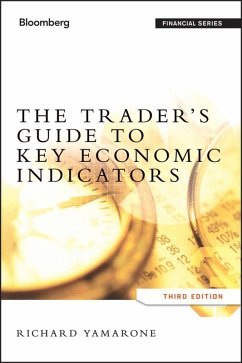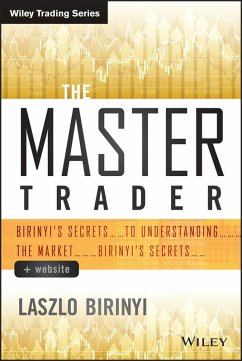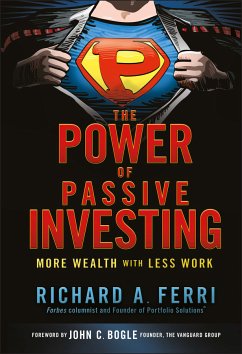Here comes a book that is a must-read, an instant classic. With a sure hand and an authoritative voice, it explains why private capital is essential to American democracy--and why it is in danger.
The book is called The Stewardship of Wealth: Successful Private Wealth Management for Investors and Their Advisors, by Gregory D. Curtis, the founder of Greycourt & Co., the first open-architecture investment manager. Curtis convincingly argues that firms such as his will be the only ones standing in the not-so-distant future. Forget broker-dealers, salespeople, product pushers and all the others that sell rather than advise. They are dead meat.
The investment climate going forward doesn't look so rosy, he says. "The West has
reached the end of its own socioeconomic evolution and is now faced with the gargantuan task of reinventing itself," Curtis writes. That means remaking governments, creating new cultures and governing mechanisms, as well as new theories for how government can support itself.
"Needless to say," he continues, "the investment implications of this are large and complex."
So is his book, so much so that I plan to break this discussion into two columns.
The first thing that struck me is that Curtis offers support to the much-maligned 1% of Americans who are the target of Occupy Wall Street. In part that might be because this is whom he works with. Curtis is sometimes called the "super wealth manager for high rollers." Before founding Greycourt, this Harvard Law School grad served for many years as president of a family office for the Mellon family and president of the Laurel Foundation.
Curtis says that the super wealthy and their use of creative capital offer the essential ingredient that makes America America. "The production of private wealth is a crucial aspect of the singular success of the American experiment," he writes. "Private capital is the most important capital in the world, and without it on a grand scale, it would be impossible to imagine America."
Curtis believes that private capital is the "continuing vigor" that drives the country. The competitive spirit, he says, "animates" the society and allows people to become rich to do things useful to the public at large.
"If that spirit were to become constrained by political or cultural mechanisms, America would rather quickly come to resemble its European cousins," he says. And to make the lure of wealth meaningful, "we must be willing to accept and tolerate the consequences of competition."
Curtis argues that great wealth has not created a selfish society. He gives numerous examples of how wealthy people with passion and purpose have built brilliant things, using ideas for art and education and politics to build "works of art" such as colleges, churches and charities that wouldn't otherwise be possible. "The American system of private philanthropy could not persist without the creative capital of the wealthy," he writes. Curtis estimates that almost 10% of all charitable giving comes from just 500 families.
In Part I of the book, Curtis speculates about why America, more than any of the older free-market democracies, has managed to preserve its vigor. "It is crucial to manage the private capital properly in order for the society to continue to function," he writes. And that's where financial advisors come in.
If private capital is the most important capital in the world, he posits, and if the owners of that capital depend on financial advisors for success, that would make financial advising one of the most crucial jobs in America. That's why, he says, his book is "directed to both wealthy families and their advisors."
Curtis then moves on to Part II.
Chapter 5, which I found particularly meaty, examines the complex and disappointing world of finance as a business. "I come down hard on my colleagues for the conflicts of interest that pervade the financial world, for the self-interest and utter lack of concern for clients, and for the corruption that has had global consequences," Curtis writes. The only legitimate reason for a firm to exist is a sense of responsibility to its customers. "Once the customer walks--and they are walking away from the financial industry in gigantic numbers--the industry is doomed."
Curtis spends a good deal of time discussing financial advisors who act as "outsourced CIOs," a rapidly growing model first adopted by pension funds and other institutional investors and then more recently by family offices and multifamily offices. The crisis of 2008 has hastened the growth of this model, Curtis says, because it's hard for advisors to make crucial investment decisions without having discretion over investments. Without discretion, advisors face a time-consuming approval process, an unacceptable option when markets are moving rapidly. What had been a steady trend toward discretionary advice "became a virtual torrent following the catastrophic market environment of mid-2007 to early 2009."
In Chapter 8, he looks at the world of private trusts. "Trusts are a prominent feature of every wealthy family," Curtis writes, "but organizing and managing trusts in sensible ways has become an increasing challenge as consolidation in the banking industry has eliminated most of the local trust banks."
By far the longest part of the book is Part III, entitled "The Rich Get Richer: The Nuts and Bolts of Successful Investing," which is a description of the best investment practices for private investors. It's meant to appeal more to financial advisors than investors. I'll review that section of the book in my September column.
Mary Rowland can be reached at rowlandnyc@aol.com. She has been a business and personal finance journalist for 30 years and has written two books for financial advisors: Best Practices and In Search of the Perfect Model. (Financial Advisor Magazine, October 2012)
"In a legendary exchange between two great American authors, F. Scott Fitzgerald reportedly said: "Let me tell you about the very rich. The rich are different from you and me." Ernest Hemingway famously replied: "Yes, they have more money."
While that assessment may have been oversimplified, both men were essentially correct.
But wealth manager Gregory Curtis has made a far more comprehensive evaluation in his book, "The Stewardship of Wealth: Successful Private Wealth Management for Investors and Their Advisors," which he wrote based on more than 30 years of handling the financial affairs of billionaire clients such as the Mellon family.
"To be sure, the challenges facing wealthy families who aspire to happiness -- that is all wealthy families -- are different from those of other families in the same way the challenges facing welfare families are different from those facing middle class families," wrote Curtis, chairman and founder of Greycourt & Co. Inc. in Pittsburgh.
The stakes are much higher for the super wealthy in many ways, according to Curtis.
Even if they get the investment stuff right, the money they have amassed could be at risk if they fail in other important areas. For instance, if rich parents don't raise their children right, the children will probably blow all the money, ruining their lives and others' in the process.
"Use your money to make the world a better place and devote your personal time to it because that's the most precious resource you have. Money, you have plenty of it. But getting your own hands dirty, rolling up your sleeves, and going out and doing something -- that's going to make you happy."
"So really 80 percent to 90 percent of American wealth disappears in about three generations. And that's pretty much true all over the world," he said."
--Tim Grant, distributed by Scripps Howard News Service, shns.com
